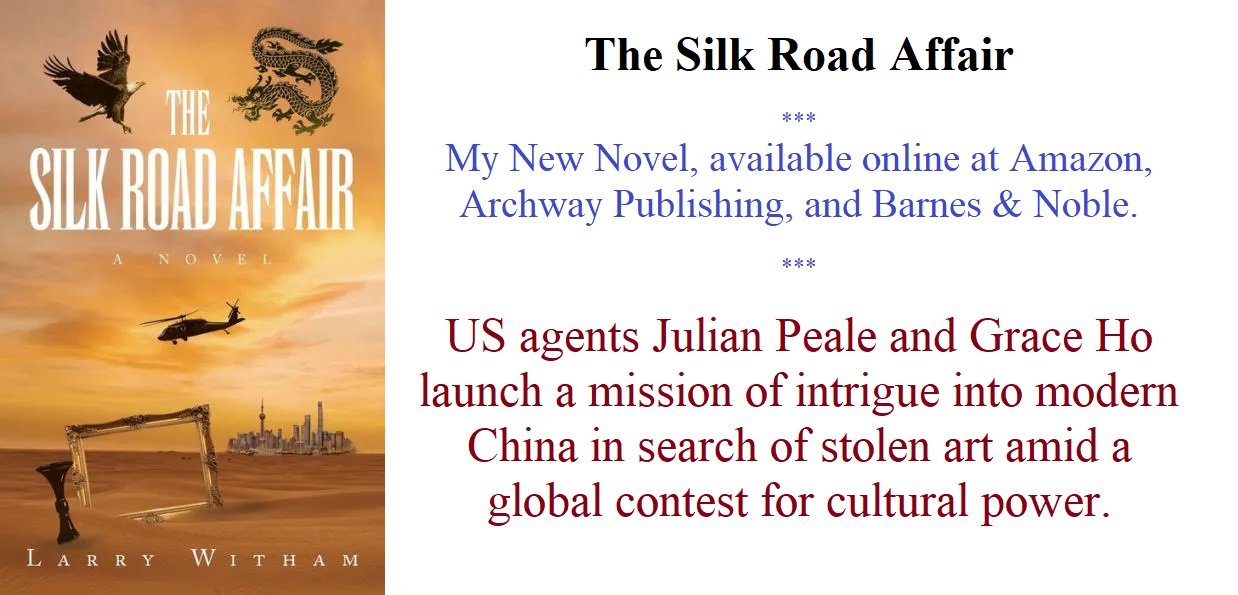WE ALL HAVE IT: intuition, or that immediate "intuitive" sense of the state of a situation. Webster's Dictionary gives one popular example by way of the common statement, "software with an intuitive interface." In other words, such computer functions "readily learned or understood."
Naturally, the term intuition has spilled into nearly all areas of life, including the art of painting. But does it really mean all that much? Or is it just a place holder for something that is very hard to describe in human experience and action?
There is no word more squishy than intuition or intuitive. That is why its application to reading computer menus and apps is so telling. Many computer visuals are indeed confusing, largely because they were cobbled together over years, trial and error, by digital engineers. Still, the online aficionados like to say, "It’s very intuitive." Except, it often is not—and one needs a step-by-step tutorial and a good memory on how to get from A to B.
Webster’s further elaborates that intuition is a “direct knowledge or cognition without evident rational thought,” an “immediate apprehension,” or a “quick and ready insight.” To the contrary, however, anyone who is new to the most recent computer innovation knows that its mastery is never immediate.
There's always been a word for the human experience of insight, or "getting it." For practical matters, it was built on practice, experiment, and training. After enough exposure to some activity, or problem, it becomes easier to know the next step. In other words, intuition is built on lots of experience, usually trial and error.
There's a higher level to this as well. From ancient times onward, it has been believed that human minds are connected to a divine mind, a source of immediate insight. Call it a gut instinct, but it was presumed to be tied to a higher omniscient power.
In modern thought, that changed. Reason dethroned the divine omniscience, at least until the arrival of the German philosopher Immanuel Kant. Though he set out to prove that reason could not settle questions of God, he concluded that something like "intuition" led the mind to an approximation of truth. This shifted modern thought toward "subjective" judgment of truth (versus the "objective" and logical arrival at what is true). In his own words, Kant said we live by intuited "faith" on such great matters.
Art, ever since, has taken up this banner. It has even suggested that there must be a paranormal—that is, metaphysical (beyond physical)—realm that the mind taps into. For a century or so, a group of innovative art historians (with the Swiss Heinrich Wölfflin as exemplar) argued that the intentions of past artists could be known by way of this kind of metaphysical realm that lingers after the artists have been long gone.
Similarly, in the field of psychology, the German thinker Carl Jung spoke of the “collective unconscious,” a kind of omnipresent, enduring, collection of all human thought across time. This introduced psychology to what might be called the paranormal or metaphysical.
In modern art, a few leading critics unfurled a similar Wölfflin-and-Jung-like concept of intuition. These critics said they could look at a work of art and determine, by quick intuition, whether it was superior or inferior.
As you can see, the word “intuition” often is used to justify human judgments: judgments on which art is good, or judgments on what to do next on a complex computer application.
Now that the idea of intuition has been detached from God, modern brain science has not found a perfect answer either. It can only conclude that it has something to do with the hardwiring of the brain and a lot of trial and error. For the physical brain, practice makes perfect—and there's no paranormal realm into which the brain can tap for "insight."
That scientific view presents a very dry outlook on human experience. Since artists live mostly by aesthetic emotions, it is not satisfying. So the in world of the arts, there endures a kind of "faith" in a metaphysical realm in which our intuitions navigate, much as fish swim through water.
In the meantime, it’s good to remember that intuition is a very squishy concept, despite its multi-defined status in Webster's. In our secular times, perhaps "gut feeling" is still the best synonym, or in longer terms, "based on what I've done before, it seems like this is what I should do next."
So, when a painter says he or she works "intuitively," take it more as poetry. We really don't know what intuition is—except that it’s a great word to use since it is less acceptable to say, "It is chaos and confusion, and this is what I have decided to do nevertheless."

